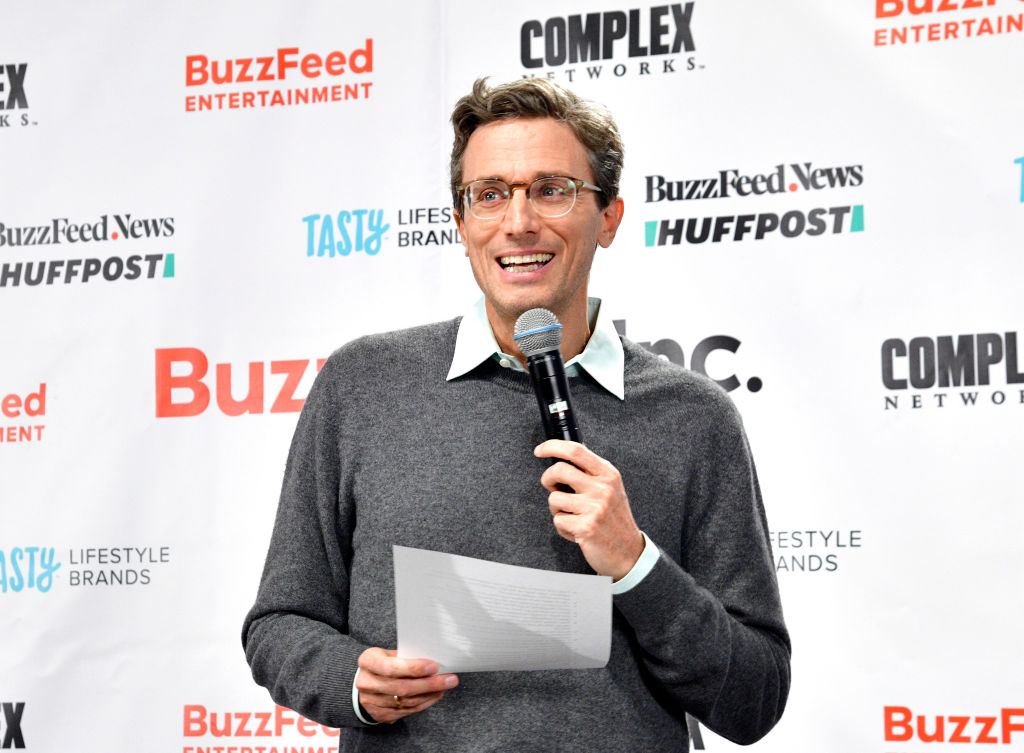The career of Jonah Peretti, founder and CEO of BuzzFeed, has been characterized by a consistent drive for transformation. Over nearly two decades, Peretti has navigated the evolution of digital media, transforming a small startup into a multimedia powerhouse at its peak.
However, as BuzzFeed matures, a lingering concern arises: Has Peretti’s relentless pursuit of innovation made him too focused on entrepreneurship to lead the company towards long-term stability?
Peretti reflects, “What’s great about this field is that it’s constantly changing. It hasn’t been 20 years of doing the same job. Instead, it’s been 20 years of running a startup, then managing a rapidly scaling business, figuring out how to take the company public, and now navigating the explosion of generative AI. There’s always something new to keep the job fresh and exciting.”
Peretti’s adaptability has been a key factor in BuzzFeed’s success. The company once uniquely excelled at creating shareable media, as seen in a video segment that garnered 77 million views over the years, exploring why Disney princes would make “terrible boyfriends.”
Today, BuzzFeed is focusing on AI, including AI quizzes and other AI-generated content. Additionally, the company is investing in BF Island, a social network that combines AI with content creation to “spread joy and enable playful creative expression,” as Peretti mentioned to Axios last month.
Peretti regularly discusses the company’s upcoming ventures with the media, even when they are still in the early stages. When asked why, he tells TechCrunch, “Discussing the things you’re working on helps improve the product. By sharing your ideas, you not only collaborate with your team but also with external parties who might be interested in partnering. The launch of new computing platforms often leads to an explosion of creativity, providing opportunities to build something new.”
This entrepreneurial spirit has driven many of BuzzFeed’s most iconic projects. The company pioneered viral quizzes and listicles before transitioning to more serious journalism with BuzzFeed News. However, not all of these changes have been successful. Notably, despite its initial success, BuzzFeed News was discontinued in 2023, leaving questions about whether the company should have stuck to a clear vision rather than constantly shifting.
BuzzFeed’s shareholders may be pondering similar questions after experiencing a roller-coaster ride. The company went public through a special purpose vehicle in 2021 and acquired Complex Networks for $300 million in cash and stock as part of the deal. Today, BuzzFeed still trades publicly but no longer owns that business, having sold it for approximately $108 million last year. More recently, BuzzFeed sold another asset from the Complex Networks deal – First We Feast – in a separate $82.5 million all-cash deal. (Peretti explains, “These businesses are not tech-focused but rather production and talent-heavy.”)
BuzzFeed’s stock, initially priced at $10, now trades at $2.20 per share.
This discrepancy highlights the tension. Peretti’s embrace of constant reinvention is striking, but it also means that the company’s strategy often appears as a series of experiments rather than a cohesive long-term plan. These experiments come at a cost. Peretti notes that BF Island is currently a $10 million investment that is not expected to generate revenue this year, although he adds that BuzzFeed’s “core business” is profitable.
It’s a valid question whether BuzzFeed would benefit from a singular, consistent vision for the future, similar to The New York Times, rather than continuously betting on new ideas.
Unfortunately, it’s challenging to determine the answer. The media industry has traditionally favored stability, but Peretti is correct in believing that the current wave of generative AI is revolutionizing content creation and sharing. Moreover, despite his enthusiasm for the possibilities, Peretti appears to be aware of the risks.
“The significant thing is that BuzzFeed has given us extensive experience with new formats,” he says. “We’ve received numerous inquiries from people with ideas who want to collaborate with us.”
Furthermore, Peretti, who is accustomed to balancing growth with financial pressures, adds, “I think the deeper understanding is that simply doing the same thing repeatedly and trying to grind it out is actually a riskier strategy than innovating, experimenting, trying new things, keeping an open mind, and attempting to figure out new approaches or ways to win in a tough market.”
For more from our interview with Peretti, tune in to an upcoming episode of StrictlyVC Download; new episodes are released every Tuesday.
Source Link





